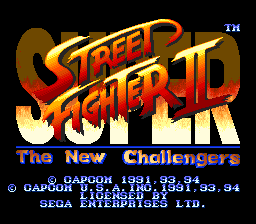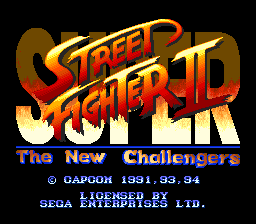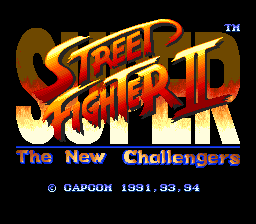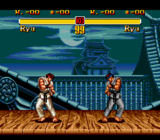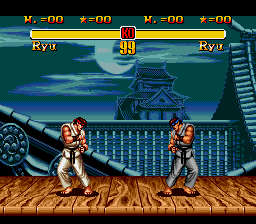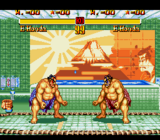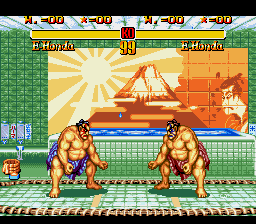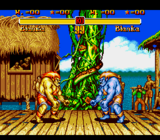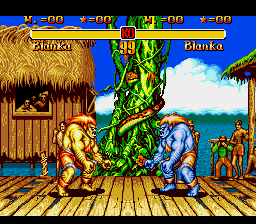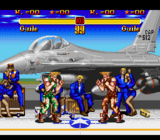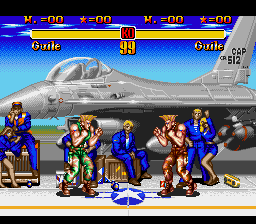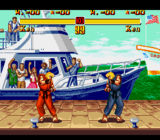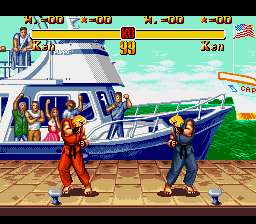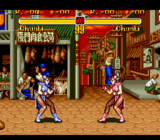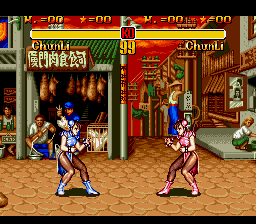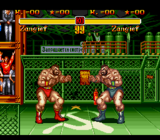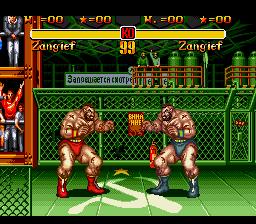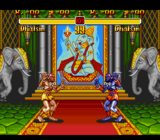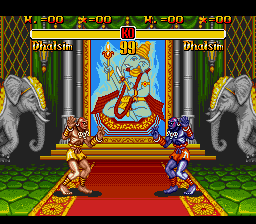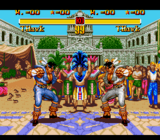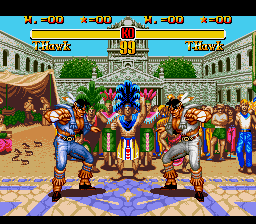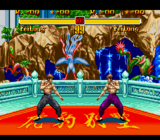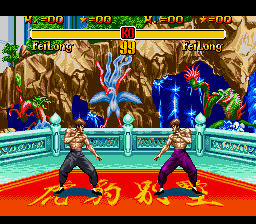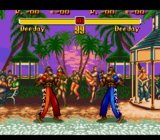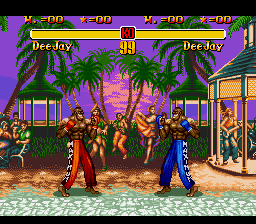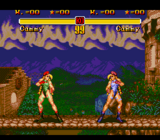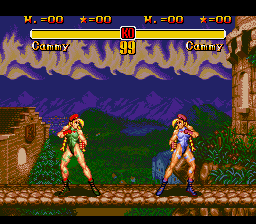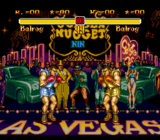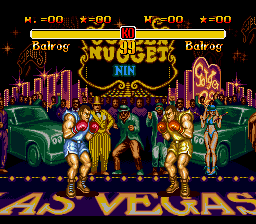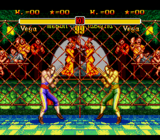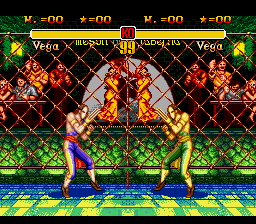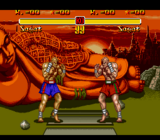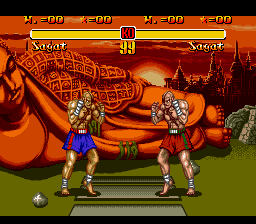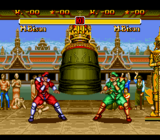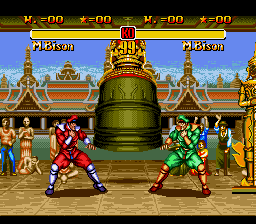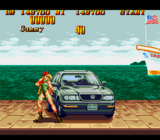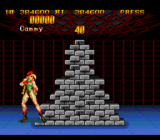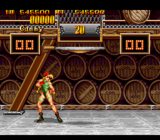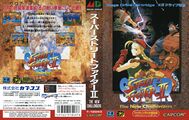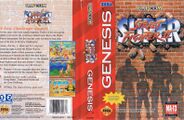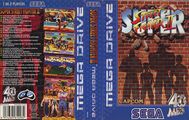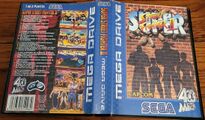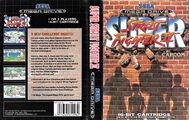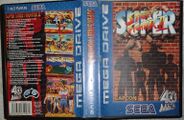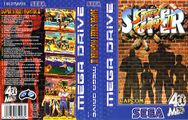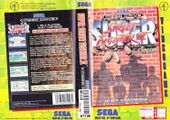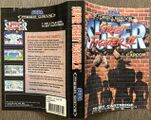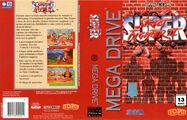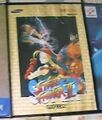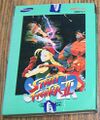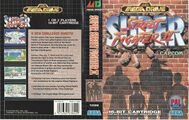Difference between revisions of "Super Street Fighter II: The New Challengers"
From Sega Retro
m (→Modes: typo) |
m (otherPage) |
||
| Line 1: | Line 1: | ||
| + | {{OtherPage|desc=the [[Sega Saturn]] version|page=Street Fighter Collection}} | ||
{{Bob | {{Bob | ||
| bobscreen=SuperSteetFighter2 Title.png | | bobscreen=SuperSteetFighter2 Title.png | ||
Revision as of 16:32, 22 July 2023
- For the Sega Saturn version, see Street Fighter Collection.
| |||||||||||||||||||||||||||||||||||||||||||||||||||||||||||||||||||||||||||||||||||||
| Super Street Fighter II: The New Challengers | |||||||||||||||||||||||||||||||||||||||||||||||||||||||||||||||||||||||||||||||||||||
|---|---|---|---|---|---|---|---|---|---|---|---|---|---|---|---|---|---|---|---|---|---|---|---|---|---|---|---|---|---|---|---|---|---|---|---|---|---|---|---|---|---|---|---|---|---|---|---|---|---|---|---|---|---|---|---|---|---|---|---|---|---|---|---|---|---|---|---|---|---|---|---|---|---|---|---|---|---|---|---|---|---|---|---|---|---|
| System(s): Sega Mega Drive, Virtual Console | |||||||||||||||||||||||||||||||||||||||||||||||||||||||||||||||||||||||||||||||||||||
| Publisher: Capcom (Japan, US), Sega (Europe) | |||||||||||||||||||||||||||||||||||||||||||||||||||||||||||||||||||||||||||||||||||||
| Developer: Capcom M2 | |||||||||||||||||||||||||||||||||||||||||||||||||||||||||||||||||||||||||||||||||||||
| Original system(s): Capcom CPS-2 | |||||||||||||||||||||||||||||||||||||||||||||||||||||||||||||||||||||||||||||||||||||
| Peripherals supported: Six Button Control Pad | |||||||||||||||||||||||||||||||||||||||||||||||||||||||||||||||||||||||||||||||||||||
| Genre: Action[1][2], Fighting[3] | |||||||||||||||||||||||||||||||||||||||||||||||||||||||||||||||||||||||||||||||||||||
| Number of players: 1-2 | |||||||||||||||||||||||||||||||||||||||||||||||||||||||||||||||||||||||||||||||||||||
| |||||||||||||||||||||||||||||||||||||||||||||||||||||||||||||||||||||||||||||||||||||
| |||||||||||||||||||||||||||||||||||||||||||||||||||||||||||||||||||||||||||||||||||||
Super Street Fighter II: The New Challengers (スーパーストリートファイターII ザ ニューチャレンジャーズ) is an update to Street Fighter II, originally released in arcades in 1993. It was ported to the Sega Mega Drive in 1994.
It was the fourth arcade release of Street Fighter II, following the original Street Fighter II: The World Warrior, Street Fighter II′: Champion Edition, and Street Fighter II′ Turbo: Hyper Fighting, and the second release for the Mega Drive, following Street Fighter II': Special Champion Edition. The game is notable for using a 40-megabit cartridge, the largest for any officially licensed Mega Drive game.
Contents
Gameplay
The arcade version of Super Street Fighter II runs on the more powerful Capcom CPS-2 hardware (as opposed to the CPS-1 which previous entries in the series used). Though the core gameplay is the same, the graphics and audio were refined and in many cases redone. As such, the game is generally seen as the most significant upgrade to the game. In addition to the improved presentation, the game adds four "New Challengers" to the series (T. Hawk, Cammy, Fei Long, and Dee Jay), expanding the total number of playable characters to sixteen. Several returning characters have received new techniques as well.
Characters move with ![]() and
and ![]() and flip back and forth with
and flip back and forth with ![]() and
and ![]() . They crouch with
. They crouch with ![]() . Punches are done with
. Punches are done with ![]() (jab),
(jab), ![]() (medium), and
(medium), and ![]() (fierce) and kicks are done with
(fierce) and kicks are done with ![]() (short),
(short), ![]() (medium), and
(medium), and ![]() (roundhouse). Light attacks are faster and hard attacks deal more damage. When playing with a standard three-button control pad, START toggles between punches and kicks. Special moves for each character are done by pairing specific directional combinations with an attack button.
(roundhouse). Light attacks are faster and hard attacks deal more damage. When playing with a standard three-button control pad, START toggles between punches and kicks. Special moves for each character are done by pairing specific directional combinations with an attack button.
Throws and grabs are done by holding the D-Pad toward an opponent and pressing a medium or hard punch or kick button. Different characters have different throws available to them, and some characters can throw in midair. Throws cannot be blocked. Blocking is done by holding the D-Pad away from the opponent, with special moves still doing a small amount of "chip damage" if blocked. Characters can become dizzy from being attacked repeatedly; they are uncontrollable and vulnerable in this state but can recover more quickly by rapidly pressing back and forth on the D-Pad along with the attack buttons. It is also possible to escape grabs in this way.
Modes
There are multiple game modes:
- Super: The single-player arcade mode, where the player plays a matches against a series of computer-controlled opponents, ending with the four Shadaloo bosses Balrog, Vega, Sagat, and M. Bison. By default, the player faces 12 total opponents, with the first eight chosen randomly. After every three matches, the player plays a bonus stage. By enabling Expert mode in the options, the player can face all 16 characters, which gives the player an extra ending sequence after completing the game. There are no bonus stages in Expert mode. In either mode, a second player can join the game to challenge the other player to a fight by pressing START , with the victor continuing in the tournament. There are eight different difficulty levels for computer-controlled opponents.
- Versus: A dedicated two-player mode. Players choose a character, a handicap, and a stage. The game keeps track of wins, losses, and draws for each player (until the console is powered off).
- Tournament: A tournament mode where up to 8 players (which can be set to computer-controlled) compete in a double-elimination tournament bracket. Matches are only one round in this mode. Players can set their handicap before each match.
- Group: A two-player mode where each player picks up to eight fighters (which can be randomly selected) and fight in a series of one-round matches. Players can choose a different number of characters and can set handicaps. In the Point Match mode, players are awarded points for each victory and extra points for time remaining in each round. After every character on both sides has fought, the player with the most points at the end is the winner. In Elimination mode, players lose the character they are playing when they lose a match. A player loses upon losing every character.
- Challenge: A single-player mode played against computer-controlled opponents. In the Time Challenge mode, the player tries to knockout opponents in the fastest time possible. In the Score Challenge, the player tries to accumulate the biggest score possible. The player chooses a character to play as well as the opponent. The stage is chosen randomly. Matches are only one round in this mode. The game does not remember records after the console is powered off.
Unlike the original arcade game, the Mega Drive port of the game has four selectable game speeds, which affect every mode except the Challenge mode.
Characters
Move lists assume the player is facing right. If facing left, ![]() and
and ![]() should be reversed. P refers to any of the punch buttons, while K refers to any of the kick buttons. For moves that require pressing all three P or K buttons, pressing any two buttons also works.
should be reversed. P refers to any of the punch buttons, while K refers to any of the kick buttons. For moves that require pressing all three P or K buttons, pressing any two buttons also works.
All of the characters from previous versions of Street Fighter II return, with some receiving new moves. Four "New Challengers" have been added: T. Hawk, a Native American warrior from Mexico whose ancestral homeland was taken from him by Shadaloo; Fei Long, a Hong Kong movie star who wishes to test his martial arts against real opponents; Dee Jay, a kickboxing musician from Jamaica seeking inspiration for his next song; and Cammy, a 19-year-old female special forces agent from England with a mysterious past tied to M. Bison.
Players choose one of eight character color schemes: the character's original color scheme with LP , their color scheme from Champion Edition with MP , their color scheme from Hyper Fighting with HP , or one of five new color schemes (with any of the kick buttons or START , with one additional color scheme available by continuing to hold any button after choosing a character).
Stages
Each character has his or her own stage where matches are hosted. The stage can be manually chosen in the two-player mode.
Bonus stages
A bonus stage appears in the single-player game after every three matches won (except when playing on Expert mode). Characters destroy inanimate objects within a time limit by attacking them for bonus points.
History
Development
Super Street Fighter II was the second Street Fighter II game to be released for the Sega Mega Drive, following from the Mega Drive-only release of Street Fighter II': Special Champion Edition (essentially a compilation of the arcade's Champion Edition and Hyper Fighting revisions with alterations suited to the Mega Drive's hardware). Unlike the arcade lineage, however, Super Street Fighter II was rebuilt almost completely from scratch, so although derives from the same base as Special Champion Edition, borrows very few assets from that earlier release.
Super Street Fighter II uses a different sound driver than Special Champion Edition, and the majority of graphics have been re-drawn and improved. It also re-introduces missing elements from the older release such as the announcer's voice.
However, this comes at a cost: the game ROM is 5MB (40 Megabits) in size, while the Mega Drive console can only safely access 4MB. Capcom created a special bank switching mapper unit to get around this problem, with Super Street Fighter II being the only officially licensed game on the Mega Drive to use such technology (others opt for an SRAM mapper). The custom hardware and larger ROM, however, drove the game's price to ¥10,900 in Japan, with similar inflated prices across the world. The only other licensed Mega Drive games originally priced at more than ¥10,000 were Koei's various titles, but those were deliberately sold at those prices.
Capcom also released a Super NES version of Super Street Fighter II at around the same period, which shares assets with this Mega Drive version. The SNES code (and by extension, likely this Mega Drive version's code) derives from two older SNES releases; a port of Street Fighter II: The World Warrior (1992) and Street Fighter II Turbo: Hyper Fighting (1993, officially spelled without the prime mark in this version).
Legacy
In the arcades, Super Street Fighter II would be followed up by yet another update, Super Street Fighter II Turbo (known as Super Street Fighter II X in Japan). This would avoid the Mega Drive and Super NES in favour of the 3DO, Amiga, Amiga CD32, and IBM PC. However, it would eventually make its way to the Sega Dreamcast in a tweaked form, Super Street Fighter II X for Matching Service.
Arcade ports of both Super Street Fighter II and Super Street Fighter II Turbo would be included in the Sega Saturn release of Street Fighter Collection. This Mega Drive version of Super Street Fighter II has also since been brought over to the Wii's Virtual Console in Japan (and listed on Sega's main site).
Versions
Super Street Fighter II was originally designed with Capcom's CPS-2 arcade hardware in mind, as opposed to previous iterations which ran on the original CPS board. While Capcom's development teams would have been more accustomed to the Mega Drive hardware at this point, the gap in technology is wider than in Street Fighter II′: Special Champion Edition, meaning more intricate details are missing from the Sega version. Virtually no assets from Special Champion Edition were recycled, being instead re-converted from the arcade.
In addition to expected losses in colour and smaller sprites across the board, backgrounds are simplified on the Mega Drive, either with layers of parallax scrolling removed (T. Hawk's stage) or missing animations (Dee Jay's stage). Many of the missing elements in Special Champion Edition are still missing in the Mega Drive port of Super, such as the overflowing water of E. Honda's stage and a missing parallax layer for clouds in Blanka's stage. More complex effects, such as the northern lights in Cammy's stage are dialed back considerably.
Bonus stages appear in a different order in the Mega Drive version for unknown reasons: rather than fight barrels in the third bonus stage, the player has to fight a wall in the second. The credits sequence where matches take place in the background was removed in the Mega Drive conversion.
While the larger ROM size means Super Street Fighter II is able to offer more voice samples than Special Champion Edition, the quality of the samples in many cases have been noticeably reduced, in addition to simplified music tracks. ROM hacking communities have since released fan-made patches to improve the quality of this audio, as well as to bring the colour palettes more in-line with the arcade version (addressing situations such as the water in Ken's stage, which is unnaturally green in the standard version).
Digital manuals
Magazine articles
Promotional material
Physical scans
| Sega Retro Average | |||||||||||||||||||||||||||||||||||||||||||||||||||||||||||||||||||||||||||||||||||||||||||||||||||||||||||||||||||||||||||||||||||||||||||||||||||||||||||||||||||||||||||||||||||||||||||||
|---|---|---|---|---|---|---|---|---|---|---|---|---|---|---|---|---|---|---|---|---|---|---|---|---|---|---|---|---|---|---|---|---|---|---|---|---|---|---|---|---|---|---|---|---|---|---|---|---|---|---|---|---|---|---|---|---|---|---|---|---|---|---|---|---|---|---|---|---|---|---|---|---|---|---|---|---|---|---|---|---|---|---|---|---|---|---|---|---|---|---|---|---|---|---|---|---|---|---|---|---|---|---|---|---|---|---|---|---|---|---|---|---|---|---|---|---|---|---|---|---|---|---|---|---|---|---|---|---|---|---|---|---|---|---|---|---|---|---|---|---|---|---|---|---|---|---|---|---|---|---|---|---|---|---|---|---|---|---|---|---|---|---|---|---|---|---|---|---|---|---|---|---|---|---|---|---|---|---|---|---|---|---|---|---|---|---|---|---|---|
|
| 87 | |
|---|---|
| Based on 37 reviews | |
Technical information
External links
- Sega of Japan Virtual Console pages: Mega Drive
- Nintendo catalogue pages: US, UK
References
- ↑ File:SuperStreetFighter2 MD JP Box.jpg
- ↑ 2.0 2.1 https://sega.jp/history/hard/megadrive/software_l.html (Wayback Machine: 2020-07-02 23:21)
- ↑ File:SSFII MD SE rental cover.jpg
- ↑ Beep! MegaDrive, "July 1994" (JP; 1994-06-08), page 138
- ↑ VideoGames, "July 1994" (US; 1994-0x-xx), page 61
- ↑ 6.0 6.1 Game Players, "Vol. 7 No. 7 July 1994" (US; 1994-0x-xx), page 38
- ↑ 7.0 7.1 Sega Magazine, "August 1994" (UK; 1994-07-15), page 78
- ↑ https://www.nintendo.co.jp/wii/vc/software/14.html (Wayback Machine: 2018-03-21 22:05)
- ↑ http://vc.sega.jp/vc_ssf2/ (Wayback Machine: 2012-01-20 09:25)
- ↑ 10.0 10.1 10.2 10.3 10.4 http://www.nintendolife.com/games/megadrive/super_street_fighter_ii (Wayback Machine: 2017-07-04 12:16)
- ↑ http://www.nintendo.com/games/detail/wiDX_oRftkYWoLJNe54F4JOiFcecWHFO (Wayback Machine: 2012-04-27 15:54)
- ↑ https://www.nintendo.co.uk/Games/SEGA-MEGA-DRIVE/Super-Street-Fighter-II-The-New-Challengers--279712.html (archive.today)
- ↑ https://www.nintendo.de/Spiele/SEGA-MEGA-DRIVE/Super-Street-Fighter-II-The-New-Challengers--279712.html (archive.today)
- ↑ 1700 igr dlya Sega, "" (RU; 2001-xx-xx), page 225
- ↑ Alaab Alcomputtar, "" (SA; 1995-08-xx), page 23
- ↑ Beep! MegaDrive, "August 1994" (JP; 1994-07-08), page 20
- ↑ Consoles +, "Juillet/Août 1994" (FR; 1994-0x-xx), page 116
- ↑ Computer & Video Games, "August 1994" (UK; 1994-07-15), page 58
- ↑ Edge, "September 1994" (UK; 1994-07-28), page 62
- ↑ Electronic Gaming Monthly, "September 1994" (US; 1994-xx-xx), page 36
- ↑ Game Players, "Vol. 7 No. 12 December 1994" (US; 1994-1x-xx), page 54
- ↑ GamePro, "August 1994" (US; 1994-xx-xx), page 42
- ↑ GamePro, "September 1994" (DE; 1994-08-26), page 50
- ↑ Games World: The Magazine, "November 1994" (UK; 1994-09-29), page 15
- ↑ Game Informer, "September/October 1994" (US; 1994-0x-xx), page 30
- ↑ Hacker, "07/1995" (HR; 1995-xx-xx), page 40
- ↑ Joker, "Oktober 1994" (SI; 1994-xx-xx), page 28
- ↑ Joypad, "Juillet/Août 1994" (FR; 1994-0x-xx), page 122
- ↑ LeveL, "Červen 1995" (CZ; 1995-06-01), page 41
- ↑ Mega, "August 1994" (UK; 1994-07-21), page 50
- ↑ Mega Force, "Juillet/Août 1994" (FR; 1994-07-04), page 72
- ↑ Mega Fun, "09/94" (DE; 1994-08-24), page 82
- ↑ Mega Play, "August 1994" (US; 1994-0x-xx), page 62
- ↑ MegaTech, "August 1994" (UK; 1994-07-21), page 6
- ↑ Mean Machines Sega, "September 1994" (UK; 1994-07-30), page 60
- ↑ Player One, "Juillet/Août 1994" (FR; 1994-0x-xx), page 78
- ↑ Play Time, "10/94" (DE; 1994-09-07), page 102
- ↑ Score, "Říjen 1994" (CZ; 1994-10-01), page 54
- ↑ Sega Power, "August 1994" (UK; 1994-07-07), page 25
- ↑ Sega Pro, "August 1994" (UK; 1994-07-14), page 44
- ↑ Sega Force, "7-8/94" (SE; 1994-10-19), page 20
- ↑ Sega Mega Drive Review, "2" (RU; 1996-01-03), page 144
- ↑ Sega Opisaniy i sekretov, "14000 Opisaniy i sekretov" (RU; 2003-03-11), page 179
- ↑ Sega Saturn Magazine, "September 1995" (JP; 1995-08-08), page 85
- ↑ Sonic the Comic, "October 14th 1994" (UK; 1994-10-01), page 10
- ↑ Todo Sega, "Septiembre 1994" (ES; 1994-0x-xx), page 30
- ↑ Tricks 16 bit, "Tricks Sega Gold 800 igr" (RU; 1998-03-20), page 255
- ↑ Video Games, "8/94" (DE; 1994-07-27), page 96
| Super Street Fighter II: The New Challengers | |
|---|---|
|
Main page | Comparisons | Hidden content | Magazine articles | Video coverage | Reception | Promotional material | Region coding | Technical information | Bootlegs | |
| Street Fighter games for Sega systems | |
|---|---|
| Street Fighter II': Champion Edition (unreleased) | Street Fighter II': Special Champion Edition (1993) | Super Street Fighter II: The New Challengers (1994) | |
| Street Fighter: The Movie (1995) | Street Fighter Alpha: Warriors' Dreams (1996) | Street Fighter II Movie (1996) | Street Fighter Alpha 2 (Dash) (1996) | Super Puzzle Fighter II Turbo (1996) | Street Fighter Collection (1997) | X-Men vs. Street Fighter (1997) | Pocket Fighter (1998) | Marvel Super Heroes vs. Street Fighter (1998) | Capcom Generation: Dai 5 Shuu Kakutouka-tachi (1998) | Street Fighter Zero 3 (1999) | |
| Street Fighter II' (1997) | |
| Street Fighter Alpha 3 (1999) | Street Fighter III: Double Impact (1999) | Street Fighter III: 3rd Strike (2000) | Super Street Fighter II X for Matching Service (2000) | Street Fighter Zero 3 for Matching Service (2001) | Super Puzzle Fighter II X for Matching Service (2001) | |
| Street Fighter Zero 3 Upper (2001) | |
| Sampler discs | |
| Street Fighter Zero 2 Taikenban (199x) | Street Fighter Collection Taikenban (1997) | |
| Street Fighter Zero 3 Tentou Taikenban (199x) | |
| Unlicensed Street Fighter games for Sega systems | |
| Jang Pung II (1993) | |
| X-Men vs. Street Fighter (Mega Drive) (1998) | |
- Six Button Control Pad-compatible games
- 1-2 player games
- JP Mega Drive games
- All JP games
- US Mega Drive games
- All US games
- EU Mega Drive games
- All EU games
- ES Mega Drive games
- All ES games
- FR Mega Drive games
- All FR games
- PT Mega Drive games
- All PT games
- UK Mega Drive games
- All UK games
- SE Mega Drive games
- All SE games
- AU Mega Drive games
- All AU games
- BR Mega Drive games
- All BR games
- KR Mega Drive games
- All KR games
- AS Mega Drive games
- All AS games
- Mega Drive games
- 1994 Mega Drive games
- All 1994 games
- Mega Drive fighting games
- All fighting games
- JP Wii Virtual Console games
- US Wii Virtual Console games
- EU Wii Virtual Console games
- DE Wii Virtual Console games
- All DE games
- Wii games
- 2011 Wii games
- All 2011 games
- Wii Virtual Console games
- Old content rating field
- All games
- Old-style rating (gamesmaster)
- Rating without PDF source
- Update ratings template
- 1 old ratings
- Super Street Fighter II: The New Challengers
- Street Fighter
- Sega Channel games
- Tectoy Mega Net games
- Mega Drive Mini 2 games
